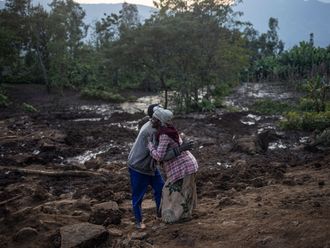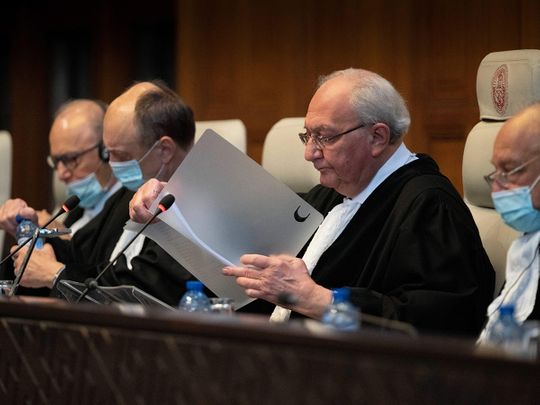
THE HAGUE, Netherlands: The United Nations’ top court has rejected Tehran’s legal bid to free up some $2 billion in Iranian central bank assets frozen by US authorities to be paid in compensation to victims of a 1983 bombing in Lebanon and other attacks linked to Iran.
In a 10-5 majority ruling, the International Court of Justice said Thursday it did not have jurisdiction to rule on the Iranian claim linked to the central Markazi Bank.
In a complex, 67-page judgment, the world court found that some other US moves to seize assets of Iran and Iranians in the United States breached a 1955 treaty between the countries and said they should negotiate compensation. If they fail to reach a number, they will have to return to the Hague-based court for a ruling.
But the largest part of the case focused on Bank Markazi, and its frozen assets of $1.75 billion in bonds, plus accumulated interest, that are held in a Citibank account in New York. The court said that it did not have jurisdiction based on the 1955 Treaty of Amity.
At hearings last year, lawyers representing the US urged the International Court of Justice to reject the claim. Iran cast the asset freeze as an attempt to destabilize the Tehran government and a violation of international law.
Iran took its claim to the world court in 2016 after the US Supreme Court ruled that money belonging to Iran’s central bank could be used as compensation for the 241 American troops who died in the 1983 bombing, which was believed to be linked to Tehran.
After the bombing of the a US military base in Lebanon, a second blast nearby killed 58 French soldiers. Iran has denied involvement, but a US District Court judge found Tehran responsible in 2003. The judge’s ruling said Iran’s ambassador to Syria at the time called “a member of the Iranian Revolutionary Guard and instructed him to instigate the Marine barracks bombing.”
Partial victory
However, in a partial victory for Iran, the judges ruled Washington had illegally allowed courts to freeze assets of Iranian companies and ordered the United States to pay compensation, the amount of which will be determined later.
The ruling comes amid heightened tensions between the United States and Iran after tit-for-tat strikes between Iran-backed forces and US personnel in Syria last week.
Relations are also strained after attempts to revive a 2015 nuclear deal between Iran and major world powers stalled, and as Iranian drones are being used by Russia against Ukraine.
The 1950s friendship treaty was signed long before Iran’s 1979 Islamic Revolution, which toppled the US-backed shah, and the subsequent severing of US-Iranian relations.
Washington finally withdrew from the treaty in 2018.
At last year’s hearings , US legal team leader Richard Visek told judges they should invoke, for the first time, a legal principle known as “unclean hands,” under which a nation can’t bring a case because of its own criminal actions linked to the case.
“The essence of this threshold defense is that Iran’s own egregious conduct, its sponsorship of terrorist acts directed against the United States and US nationals, lies at the very core of its claims,” Visek told the court.
In the case it took to the Hague-based International Court of Justice, Iran argued the asset freeze was a breach of the 1955 Treaty of Amity, which promised friendship and cooperation between the two countries. The US and Iran have had no diplomatic relations since militant students took over the US Embassy in Tehran in 1979.
Visek argued the frozen assets were state holdings not covered by the treaty, which Washington terminated in 2018 in response to an order by the International Court of Justice in a separate case to lift some sanctions against Iran.
The court’s judgments are final and legally binding.


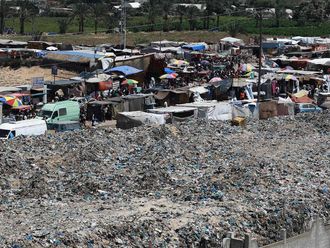
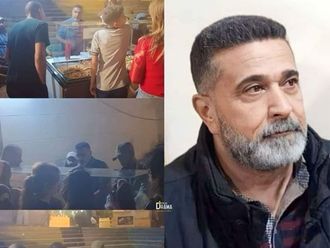


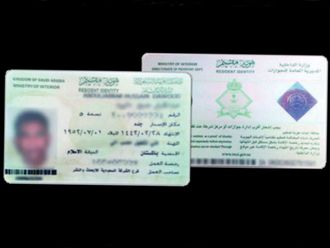

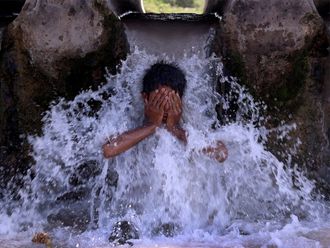

_resources1_16a30b3523c_small.jpg)
